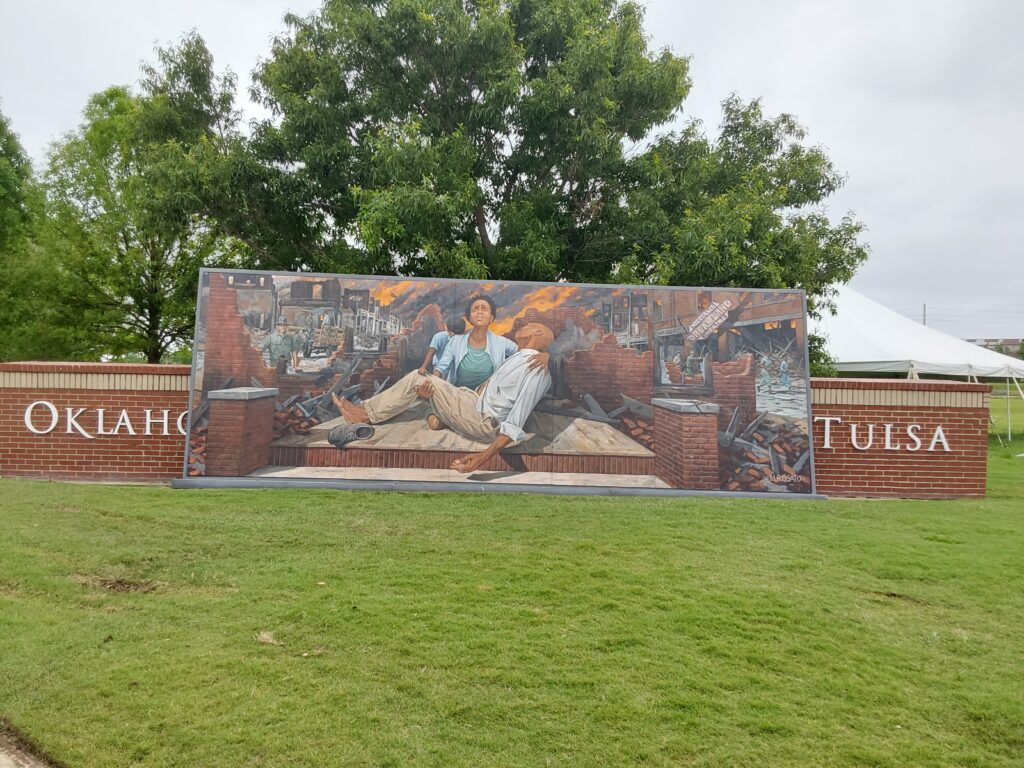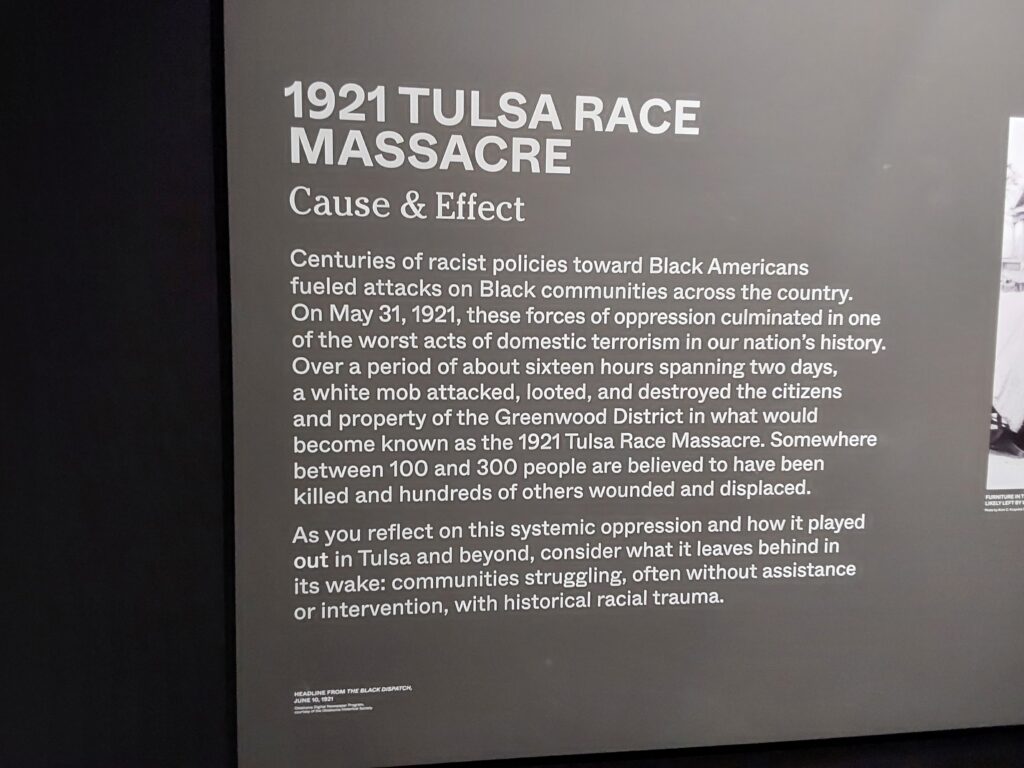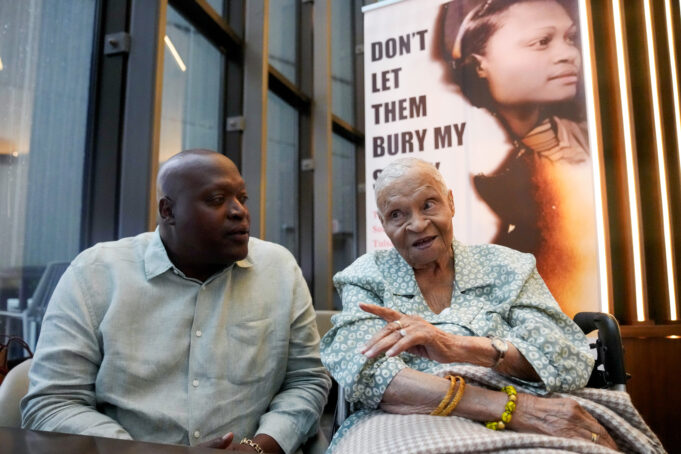The recent ruling by Tulsa County District Court Judge Caroline Wall dismissed with prejudice the lawsuit for damages against the state of Oklahoma and the city of Tulsa brought by the last three survivors of one of America’s worst race massacres. During the Tulsa race riot in 1921, White mobs killed as many as 300 Black people, looted and destroyed a 40-block area, burning it to the ground. Thousands were left homeless, and survivors were detained in an internment camp.
“We are taught that the enemy expands the law for whom he pleases and narrows it for who he pleases, so teaches the Honorable Minister Louis Farrakhan,” Nation of Islam General Counsel Abdul Arif Muhammad told The Final Call. “There’s a problem in America with the question of forthrightly addressing slavery and the issue of reparations or compensation to us for the damage that was caused then and that we still suffer from today,” said Attorney Muhammad.
“What is troubling from a legal standpoint is that the court has not issued a written order concerning the dismissal,” he continued. “According to what I read it was news media that were reporting it. The next legal steps would largely be an appeal. However, you would have to get a final or written order from the judge to understand the basis for the decision, which has not yet to be issued from what I’ve read.”

At Final Call press time, the ruling had not been sent to the Solomon Simmons Law and Schulte Roth & Zabel firm representing the massacre’s survivors.
The lawsuit was brought in 2020 by the three survivors— Lessie Benningfield Randle, 108, Viola Fletcher, 109, and Hughes Van Ellis, 102, in an attempt to see, as their lead attorney Damario Solomon-Simmons explained, “justice in their lifetime.” The Tulsa area known as Greenwood, at that time, was one of the most affluent Black business districts in the country. It never recovered from the race riot. The lawsuit contended that Tulsa’s long history of racial division and tension stemmed from the massacre.
Through Tulsa’s Black Wall Street Massacre, at the hands of angry torch-wielding Whites, properties were burned to the ground, displacing thousands and murdering untold other numbers of men, women and children. All of the carnage stemmed from unfounded allegations of a young White female elevator operator against a young Black man.
The Solomon Simmons law firm explained in a press statement that the large White mob included members of the Tulsa Police Department, the Tulsa Chamber of Commerce, the Tulsa County Sheriff’s Department and the Oklahoma National Guard, as well as other city and county leaders.
According to the Tulsa Historical Society, losses included 191 businesses, a junior high school, several churches, and the only hospital in the district. The Red Cross reported that 1,256 houses were burned and another 215 were looted but not burned. The Tulsa Real Estate Exchange estimated property losses amounted to U.S. $1.5 million in real estate and $750,000 in personal property (equivalent to a total of $37 million in 2022).
The Red Cross report in December 1921 estimated that 10,000 people were made homeless by the destruction. Over the next year, local citizens filed more than US$1.8 million (equivalent to $30 million in 2022) in riot-related claims against the city.
Many Tulsa residents point out that the racial and economic disparities in the Black community persist due to an environment created by the massacre. The lawsuit seeks financial and other reparations, including a 99-year tax holiday for Tulsa residents who are descendants of victims of the massacre in the north Tulsa neighborhood of Greenwood, the construction of a hospital in north Tulsa, and the creation of a victims’ compensation fund, among other things.
The law firm representing the survivors, released a statement after Tulsa County District Court Judge Caroline Wall posted her ruling in Randle, et al, v. City of Tulsa, et al, on the Oklahoma State Courts Network website:

“The lawsuit seeks to return the Greenwood District, once known as Black Wall Street, back to the prosperous area it was prior to the devastating events of May 1921. Today, this area remains poorer and in worse health than the rest of the city. In May 2021, Human Rights Watch published a follow-up to their groundbreaking May 2020 report on the Case for Reparations in Tulsa reporting on the failure of the City of Tulsa and the Centennial Commission to support the survivors’ demands for justice,” the law firm wrote.
“The defendants’ latest actions are further indications that they are failing to rebuild what they destroyed, reaping benefits from their destructive acts, and denying justice for Greenwood,” said Attorney Solomon-Simmons.
Days after the ruling, Mr. Solomon-Simmons held a news conference. “For these three survivors—109, 108 and 102 years old—to have their case kicked out, it is a travesty. It is absurd, just a complete injustice. So, no, we did not expect this,” he said.
He explained his plans to file an appeal to Oklahoma’s Supreme Court and is urging the Department of Justice to open an investigation. “We’re going to continue to push the president of the United States, Joe Biden, who came down here to Tulsa two years ago and said he recognized that the massacre was just that and justice should be done.”
Compensating the Tulsa survivors has been controversial. The city, the regional Chamber of Commerce and other state and local agencies submitted written complaints to the judge arguing the request to compensate the Tulsa massacre survivors would impose a significant burden on the government’s financial stability.
The City of Tulsa requested the lawsuit be dismissed with prejudice against refiling. Their legal team contended, “Simply being connected to a historical event does not provide a person with unlimited rights to seek compensation from any project in any way related to that historical event.”
“If that were the case, every person connected to any historical event could make similar unjust enrichment claims against every museum or point of remembrance,” they claimed. Judge Wall wrote that she was dismissing the case based on those arguments.
Sara Solfanelli, one of the attorneys representing the survivors, wrote in a statement, “Black Americans, especially Black Tulsans, carry the weight of intergenerational racial trauma day in and day out—a weight they cannot relinquish or cavalierly dismiss.
“The dismissal of this case is just one more example of how America’s, including Tulsa’s, legacy is disproportionately and unjustly borne by the Black community.”
—Nisa Islam Muhammad, Staff Writer













